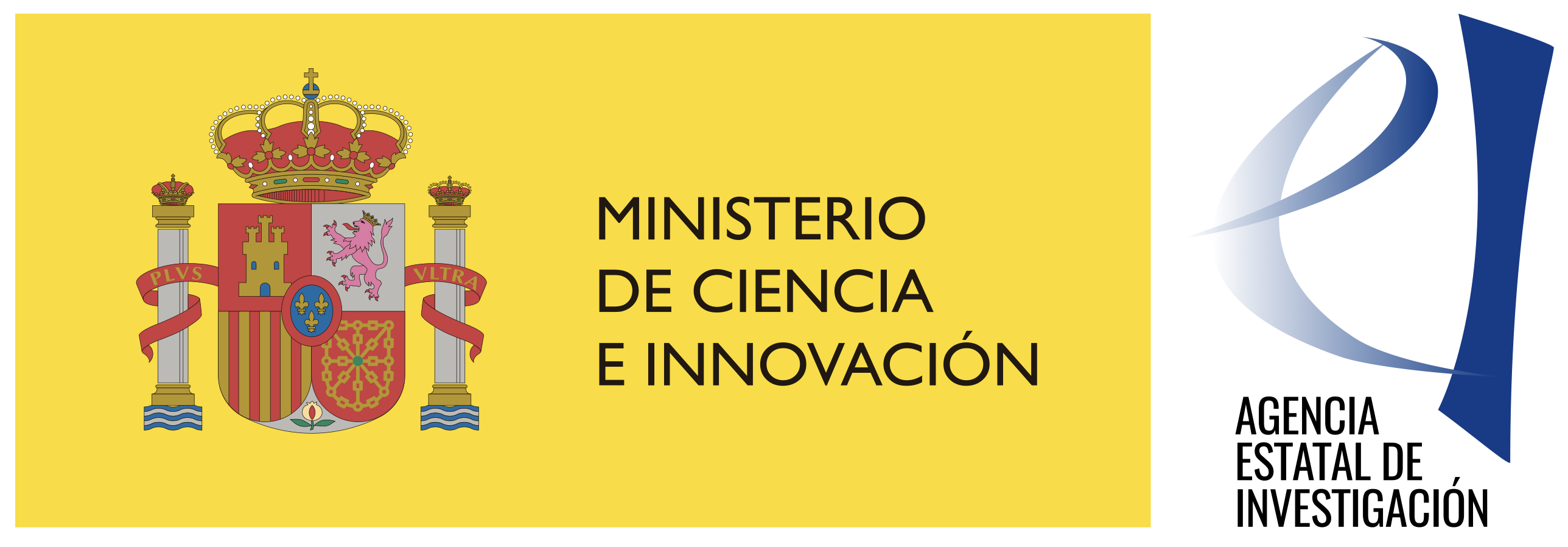FunMolSys - On-surface Synthesis of Functional Molecular Systems
This is a collaborative research project funded by the Spanish Research Agency (AEI) for synthetizing functional complex carbon-based molecular nanostructures with atomic precision and testing their potential operability as functional units in various technological applications, such as spintronics, topological engineering, (opto)electronics, thermoelectricity, and chemical and molecular sensing and filtering. FunMolSys combines the work of six Spanish research groups in Galicia (CiQUS at the University of Santiago de Compostela), Euskadi (the CFM, Centro de Física de Materiales - CSIC-UPV, and CIC nanoGUNE), Aragón (the ICMA, Instituto de Ciencia de Materiales de Aragón – CSIC-UZ), and Catalunya (the ICN2, Instituto Catalán de Nanociencia y Nanotecnología). In the last years, FunMolSys has produced novel strategies for synthesis of customized graphene platforms over metallic surfaces and identification of their new electronic and magnetic properties with a combination of multiple experimental methods, theoretical tools, and multidisciplinary expertise. Within FulMolSys, the research groups of Theory and nanoimaging, led by Profs. Artacho and Pascual, respectively, contributed with a sub-project entitled “Magnetism and topological states of on-surface engineered molecular nanosystems”
Advanced functional materials are an important economic and employment generator. To achieve more ecological and energy efficient technologies, there is a need to design and simulate custom-made materials with new physical properties and performance. Covalent molecular nanostructures (CMNs), and among these graphenic nanoscale materials, exhibit tunable electronic, magnetic, optic, or chemical properties with potential relevance for applications in several fields representing societal challenges in the new digital society, like communications, processing, energy storage or advanced material processing. The project FunMolSys aims at the identification of new potential technological applications of prototype carbon nanostructures by design, simulation, direct measurement, and manipulation of their structure and physical properties.
At the nanoscale, property tunability is mainly achieved by the atomic-scale precision in structure shape and chemical composition. In order to achieve this precision, FunMolSys uses the on-surface synthesis (OSS) strategy, which was developed to maturity in previous projects of the applicant consortium. In OSS, large, predesigned molecular structures can be fabricated on a metal surface and under ultra-high vacuum conditions by reactions of custom-made molecular precursors. The OSS strategy follows first the design and in-solution synthesis of the precursor molecules with pre-defined active sites for reaction. The molecular precursor is posteriorly deposited on a surface and a sequence of polymerization and intramolecular transformations are induced by diverse external stimuli.
The main goal of FunMolSys is to fabricate complex CMNs and test their potential operability as functional units in various
technological applications, such as spintronics, topological engineering, (opto)electronics, thermoelectricity, and chemical and molecular sensing and filtering. While many of these properties are barely detected in previous endeavors of this consortia, others lie at a predictive level waiting for experimental verification. Specifically, the advance of FunMolSys over state or art is paved along four interdisciplinary routes, namely i) the discovery of novel and more efficient synthetic routes, either in solution or in surface, ii) the fabrication of novel molecular architectures such as 2D CNM porous networks, open-shell structures, and organic topological insulators, iii) the advance in device engineering strategies for achieving large Molecular Nanostructures over technologically relevant surfaces, and iv) the discovery of novel functionalities such as electronic correlations and superconductivity, pi-paramagnetism, spin-hall effect, or reactivity.
Given the multidisciplinary character of the project, FunMolSys gathers six competitive research groups, covering a wide spectrum of complementary research techniques, expertise and disciplines. Through the collaborative coordination of this proposal, FunMolSys combines disciplines of physics, chemistry and engineering in a productive interaction that has been proven to be successful after six year of common work in two previous collaborative research projects. FunMolsys is also designed to achieve maximum societal impact by enhancing interactions between students, outreach, technology transfer, and connection with European-wide consortia.
This project is funded by PID2019-107338RB-C61/MCIN/ AEI /10.13039/501100011033

